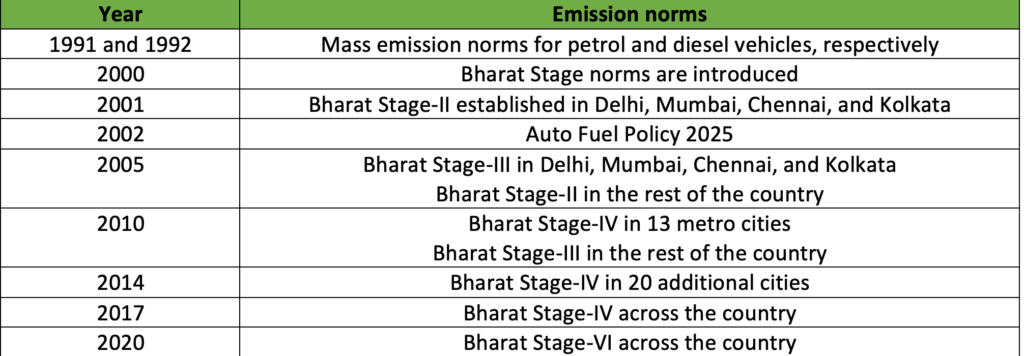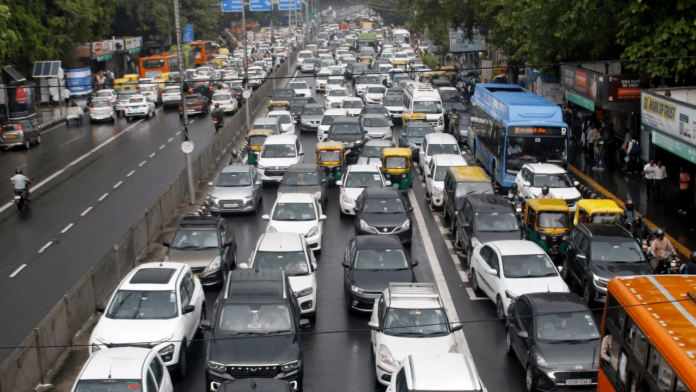The Indian government is gearing up to implement stricter emission norms, including BS-VII and CAFE-III, in an effort to combat air pollution caused by vehicles. These measures are part of a comprehensive plan to enhance sustainability in the transportation sector over the next five years. While the official rollout is slated for the future, preliminary work has already commenced to expedite the process.
Bharat Stage (BS) norms, akin to Europe’s ‘Euro’ standards, regulate vehicle emissions in India. As Europe moves towards implementing Euro-7 standards, India must align itself to ensure emission control and facilitate the export of domestically manufactured vehicles to European markets. Achieving this requires collaboration with oil companies to upgrade fuel quality and with the automotive industry to adapt to the new standards, necessitating significant investments from both sectors.

Discussions have begun within the road transport ministry regarding the specifics of BS-VII norms, with a keen eye on the developments surrounding Euro-7 standards. Last year, Transport Minister Nitin Gadkari urged automakers to proactively prepare for BS-VII compliance, emphasizing the need for timely action. Similarly, the Corporate Average Fuel Efficiency (CAFE) norms, implemented in two phases, mandate stringent emission standards to promote fuel efficiency and reduce pollutants.
It is anticipated that the stringent emission and CAFE norms will drive the adoption of electric vehicles (EVs) in India, thereby contributing to the nation’s ambitious climate goals. The transportation sector currently accounts for over 12% of India’s energy-related CO2 emissions, making it a significant contributor to urban air pollution.
In parallel, discussions are underway to introduce the third phase of CAFE norms, known as CAFE-III, by 2027. These norms will further enhance fuel efficiency standards for various types of vehicles, including passenger and commercial vehicles. The existing CAFE-II norms, operational since 2022, set emission caps for passenger vehicles, with plans to align with Europe’s more stringent standards under CAFE-III.
Non-compliance with CAFE norms attracts penalties for automakers, incentivizing them to adopt cleaner and more efficient technologies. The proposed CAFE-III norms will be mandatory for all passenger vehicles, necessitating adjustments in vehicle composition to meet emission and efficiency targets.
Additionally, alongside CAFE norms, Bharat Stage Emission Regulations (BSER) such as BS-VI aim to reduce emissions of toxic byproducts, while CAFE norms focus on improving fuel economy and reducing carbon dioxide emissions. India’s efforts align with its target to reduce carbon emissions by approximately 45% by 2030 from 2005 levels, reflecting a commitment to environmental sustainability and climate action.





